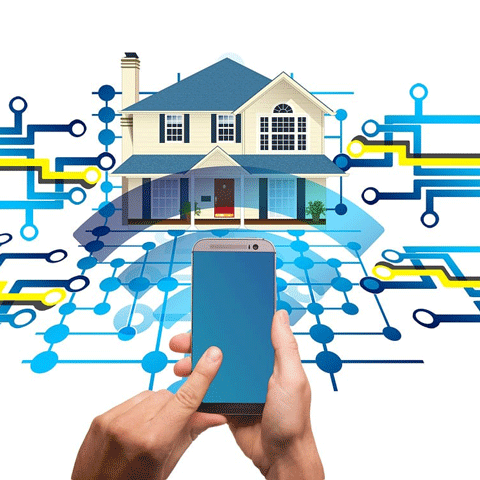
Can Smart Home Technology Help my Loved One?
“I keep trying to call Dad but he isn’t answering the phone.”
“I’m worried that Mom may leave the stove on and start a fire.”
“Did Mom remember to lock the door when she left?”
Is your parent or loved one living alone independently…but you’re noticing changes in memory, and you’re beginning to question their movements or safety? Smart home technology could give you a window into their daily life and help keep your parent living independently.
Ideas to Try
Each person’s situation and needs are different, and there is no one-size-fits-all solution. Here are some “smart home” technologies that might help your loved one with mild cognitive impairment:
- Set up an indoor security camera in the main area of the home so that if their person isn’t answering the phone, you can see if they are moving around and even make an audio announcement through the camera.
- Motion sensors can be set up inside the home to detect movement, identify patterns of typical movement, and alert you if there is a change to the pattern.
- Smart doorbells with cameras can alert you to people arriving at the home. Smart door locks can alert you when the door has been locked or unlocked. You can also lock the door remotely. There are also Wi-Fi and Bluetooth enabled garage door sensors so you can receive an alert whenever the garage door is opened or closed.
- Smart thermostats and smoke/CO2 detectors can be set and monitored remotely, and push notifications can be set to alert you if something out of the ordinary is detected in the home.
- Smart speakers can be helpful for setting reminders, alarms, and allowing you to do audible drop-ins to communicate with your person. They also can have pleasurable elements like playing favorite music or telling jokes!
- We haven’t even discussed home security systems, smart appliances, smart lightbulbs…. the list goes on and on (and keeps evolving!)
It can be difficult for a person with memory loss to remember how to use new technology, so this is an opportunity for other tech-savvy family members or friends to help put these tools in place and manage them. Research the products you choose, and set them up with good, strong passwords to minimize any risk to privacy or security.
Incorporating smart home technologies can provide peace of mind for both individuals with memory loss and their loved ones, helping to ensure safety while supporting independence. While these tools offer valuable assistance, it's important to have open conversations with your loved one and make sure they are comfortable with the technology in their home, remembering that these solutions complement - but don't replace - in-home care when necessary.
Author
Lindsey Vajpeyi, Director of Early Stage Programs, Insight Memory Care Center
Insight Blog
Read More







